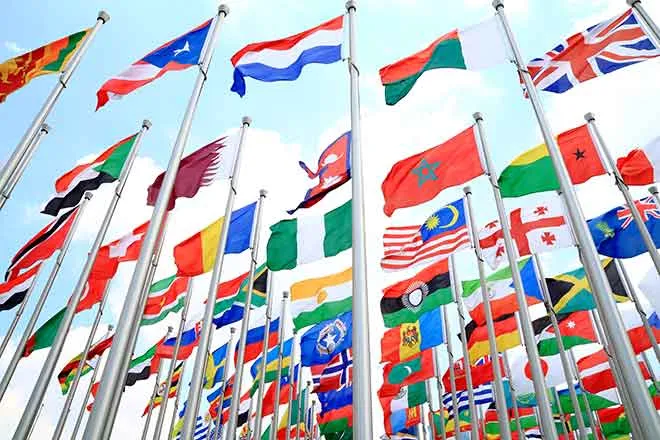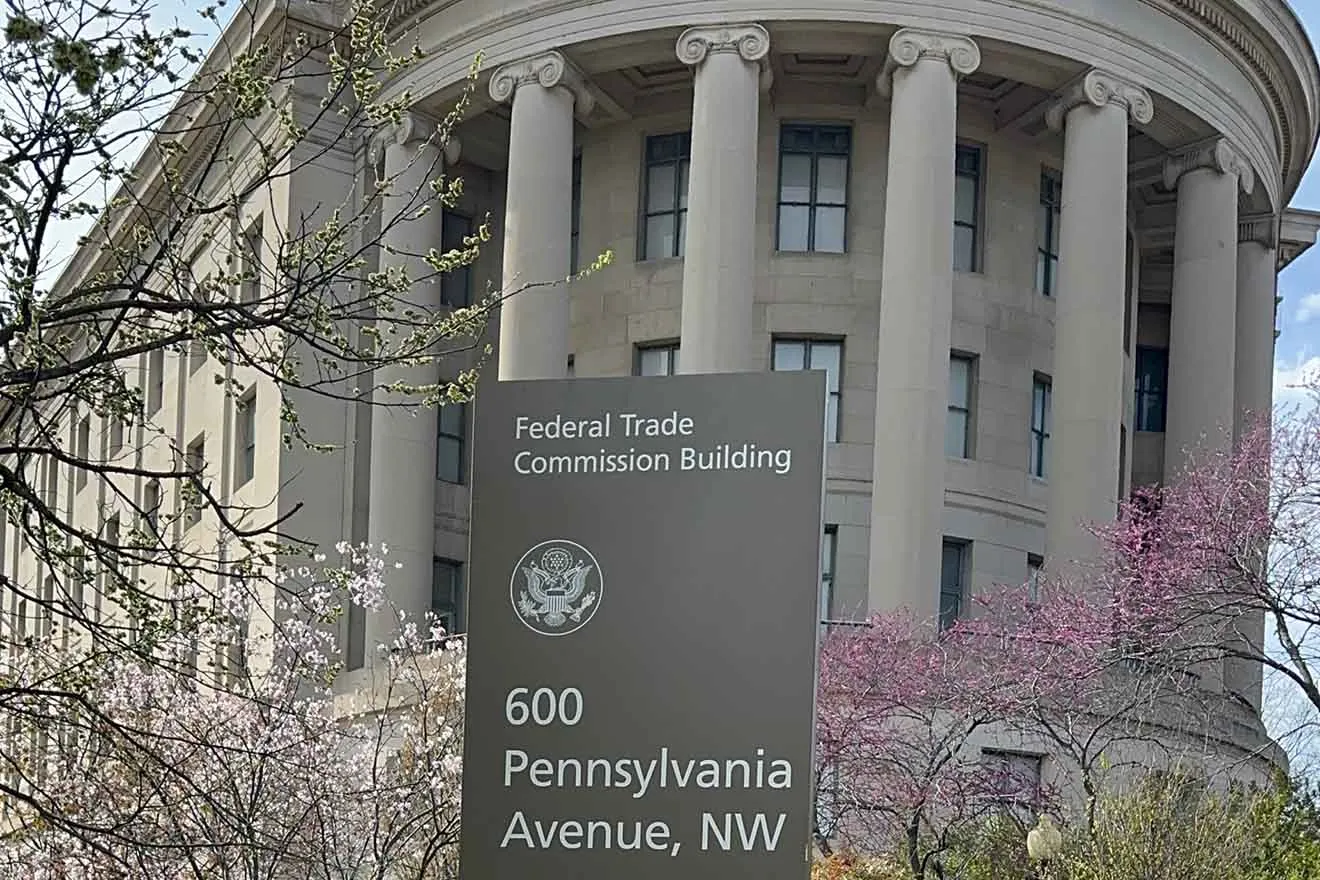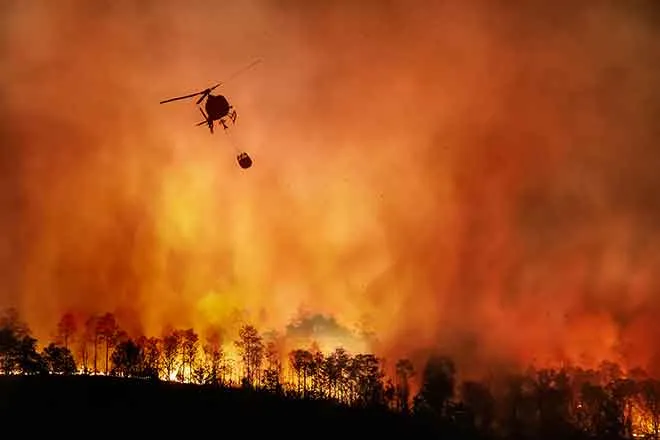
Iran and the US appear unlikely to reach a new nuclear deal – leaving everyone more unsafe
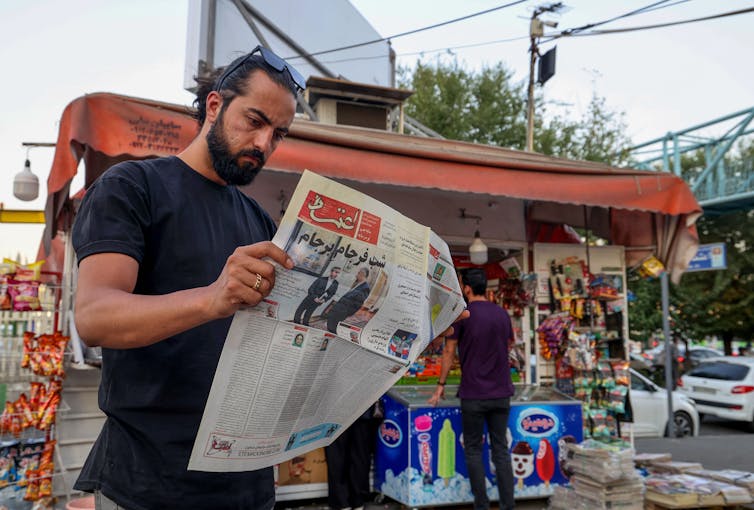
Nina Srinivasan Rathbun, USC Dornsife College of Letters, Arts and Sciences
Iran’s standoff with the United States over its potential nuclear weapons program is unlikely to ease anytime soon.
The U.S. and Iran launched talks in 2021 to renew a now-defunct political deal that would curb Iran’s nuclear program.
But the window for Iran and the U.S. to rejoin and return to compliance of the lapsed 2015 nuclear deal, called the Joint Comprehensive Plan of Action, is quickly closing. China, France, Germany, Russia, the United Kingdom and the U.S. all agreed to the plan with Iran in 2015. The U.S. pulled out of the deal in 2018, effectively derailing it.
But U.S. officials told Israel’s Prime Minister Yair Lapid on Sept. 7, 2022, that despite ongoing talks in Vienna, it was unlikely the group of countries would sign a deal anytime soon.
European Union Foreign Policy Chief Josep Borrell previously emphasized on Sept. 5, 2022, that efforts to reach a new agreement are “in danger” due to recent divergences between the U.S. and Iranian positions.
I have worked and researched nuclear nonproliferation and U.S. national security for two decades. When diplomacy fails to prevent nuclear proliferation, particularly by a state like Iran that engages in malicious acts throughout the region, everyone in the world is less safe.
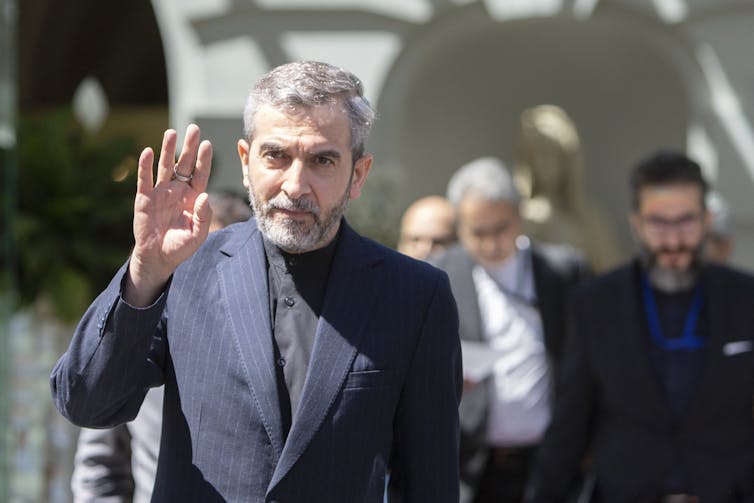
US and Iran reach a deal – temporarily
The U.S. and its allies have been concerned about Iran’s possible pursuit of nuclear weapons since intelligence uncovered its covert nuclear program, suspended since 2003. Iran’s possession of nuclear weapons would undermine U.S. and its allies’ security and destabilize the Middle East, likely encouraging more Middle Eastern countries to try to develop the weapons themselves.
After decades of disagreement, the U.S. and Iran signed a deal in 2015 that halted Iran’s development of nuclear technology and stockpiling of nuclear material in exchange for lifting multiple international economic sanctions placed on Iran.
This was significant because it lengthened the amount of time it would take Iran to stockpile the nuclear material to build a nuclear bomb to over a year. It halted Iran’s development of more advanced enrichment capabilities.
It also gave the International Atomic Energy Agency, a nuclear watchdog organization that is part of the United Nations, more oversight over Iranian nuclear activity, letting U.N. inspectors regularly observe all of Iran’s nuclear sites.
But the deal fell through in 2018 when the U.S. withdrew from the agreement under former President Donald Trump and reimposed hundreds of economic sanctions on Iran.
Iran waited until 2019 before it officially broke the 2015 agreement by enriching uranium enrichment above the permitted 3.67% purity levels set by the deal. This alone did not substantially rule out eventually returning to the 2015 agreement.
Since then, however, Iran has developed its nuclear technology – but has not developed actual nuclear bombs.
Returning to the 2015 deal
If Iran rejoined a nuclear agreement with the U.S., it would need to export its stockpile of enriched uranium, allow the U.N. nuclear watchdogs to oversee all of its nuclear facilities and stop research into nuclear weapons.
It is extremely difficult to return to a diplomatic agreement in which one side has to make additional concessions and return to a previous status quo.
When I worked in multilateral nuclear diplomacy for the U.S. State Department, we saw talks fail regarding North Korea’s nuclear weapons program in 2009, after six years of on-and-off progress.
Unfortunately, Iran seems to be on a similar path.
In April 2021, an explosion that caused a blackout occurred in Iran’s Natanz uranium enrichment facilities. Iran then began enriching uranium to its highest level of purity ever documented, above 60% – a level that is very close to what is required to get weapons-grade uranium.
Iran’s decision over the past few years to reduce access to the International Atomic Energy Agency’s monitoring equipment and to begin research into uranium metals, necessary for weaponization, also moved it further away from the possibility of returning to the 2015 deal.
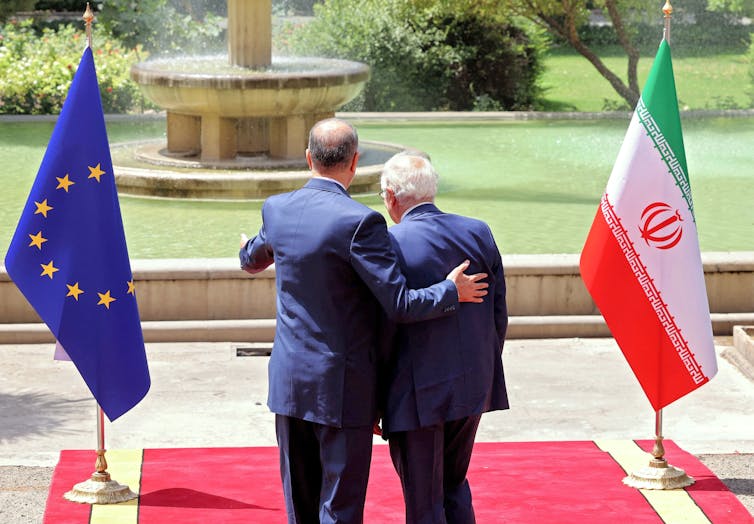
Iran today
Iran currently has the technical ability to produce a nuclear bomb within a few weeks, though not the weaponization knowledge necessary to build it. A different kind of technology is needed to actually design and manufacture a bomb, which may take Iran about two years to develop.
Iran’s technical ability to develop a nuclear weapon reduces the value for the U.S. government of returning to the 2015 deal since Iran’s knowledge cannot be put back into Pandora’s box.
A return to the agreement, however, could help the U.S. and Iran step back from the edge, build trust and perhaps develop better political relations. Both sides would benefit from this stabilization: Iran economically from being reintegrated into the international system, and the U.S. from a verifiable lengthening of the time it would take Iran to break out.
None of this is guaranteed.
While both sides expressed support for a return to the 2015 deal in early 2021, and continue to do so, there remain a number of sticking points that prevent progress.
Priorities for Iran include the U.S. removing the Iranian paramilitary group Islamic Revolutionary Guards Corps from its list of foreign terrorist organizations and getting a guarantee that no future U.S. president would renege on the renewed nuclear deal.
The main issues for the U.S. center around the American hostages currently held in Iran and the desire to lengthen the time it would take Iran to stockpile material for a nuclear bomb.
The European Union’s final text for the proposed agreement from August 2022 presents a last-ditch attempt to map out a return to the advantages of the nuclear deal.
Unless Iran accepts European reassurances, a deal seems increasingly unlikely. Unfortunately, Iran is then likely to increase its nuclear capabilities toward weaponization and further undermine the International Atomic Energy Agency’s monitoring of its program. Such escalations would precipitate increasingly confrontational responses, making any new agreement extremely unlikely, while heightening tensions and increasing the possibility of regional conflict.![]()
Nina Srinivasan Rathbun, Professor of international relations, USC Dornsife College of Letters, Arts and Sciences
This article is republished from The Conversation under a Creative Commons license. Read the original article.


